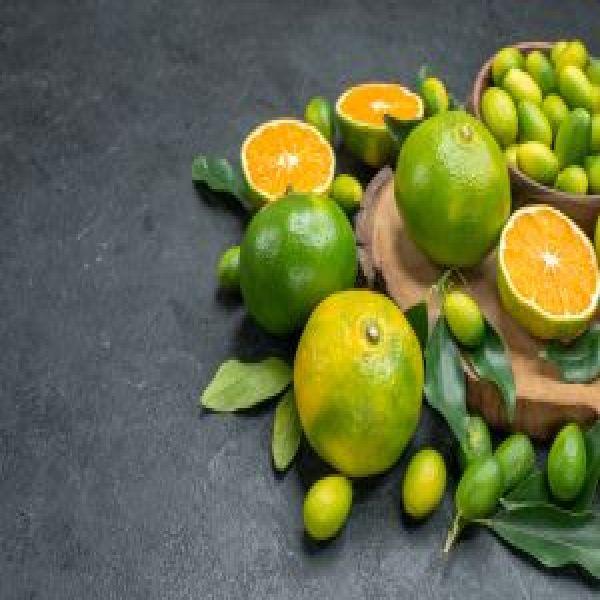Health benefits of citrus fruits
Consuming vrious types of citrus fruits helps to improve antioxidants in your body and thus better skin , gut and heart health can be achieved.
updated on:2025-05-07 07:45:36
Written by Dr. Sanjana V.B Bhms,dbrm,cdn
Founder & medical director of siahmsr wellness.in
All rights reserved with siahmsr digital healthcare[siahmsr wellness]
Reviewed by SIAHMSR medical team.
Citrus fruits help boosting immunity
Citrus fruits have immense nutritive value as they help to reduce the risks of lifestyle-related diseases, such as cancers, cardiovascular diseases, and diabetes etc. These fruits contain high amounts of bioactive compounds in the peel and pulp which are very useful for healthy living.
Commercially, several species comes under citrus fruits, including lemons ( Citrus limon), limes (Citrus latifolia ), mandarins (Citrus reticulata Blanco), satsumas (Citrus unshiu Marcow), clementines (Citrus clementina Hort. ex Tanaka), common mandarins (Citrus deliciosa Ten) and tangerines (Citrus tangerina Hort. exTanaka), oranges (Citrus sinensis L. Osbeck), grapefruit (Citrus paradisi Macfad. and its hybrids) and pummelos (Citrus maxima Burm. Merr.
citrus fruits - antioxidant potential
Citrus fruits such as oranges, lemons, tangerines, limes, and grapefruit are excellent source of vitamin C which is a powerful antioxidant as well as immunity boosting vitamin. Vitamin C plays a crucial role in preventing infections and inflammation. As an effective antioxidant vitamin C prevents oxidative stress to the body and prevents damage to vital organs and skin.
Vitamin C is an essential micronutrient contributing to your immune defense system by supporting multiple cellular functions. Being an antioxidant, it can also fight free radicals in the body, thereby decreasing inflammation and boosting immunity.The antioxidant activity of Citrus fruits is mainly due to the high content of phenolic compounds. Flavanones are the dominant group of flavonoids in Citrus.
It can keep your skin healthy and enable it to act as a barrier against toxic compounds entering your body.
Citrus fruits improve digestion &gut health
Citrus fruits contain fiber which helps to improve digestion and gut health. Fibers also play a crucial role in reducing blood sugar as well as bad cholesterol.
Citrus fruuits improve cardiovascular health
Citrus fruits are rich in potassium which helps to maintain normal blood pressure and proper functioning of heart.This is beneficial to prevent stroke and heart attack.
Citrus fruits keep your body hydrated
Citrus fruits are excellent source of water and it helps to improve skin health and body. .Hydration is important for proper metabolic functions of the body and detoxification.
Citrus fruits help to improve the beauty of your skin
Citrus fruits have very important role in enhancing the beauty of your skin and health in general due to their vitamin C antioxidants which prevent free radical damage. Vitamin C also helps to boost collagen production which prevent premature ageing and sagging of skin. Collagen is essential for tightening the skin.
Citrus fruits are low in sugar and can be consumed by all
Weight
loss is one of the major goals of all those prefer to be healthy and fit. Citrus
fruits are low in calories and fat. It can be consumed even by those who are
diabetic and ill. They are low glycaemic index fruits which will not cause a blood sugar spike.
However, citrus fruits are not a good source of proteins.
SIAHMSR
Common citrus fruits include:
Japanese
citrus
Lime
Australian
lime
Lumia
Orange
Papeda
Sweet
lemon
Grape
fruit
Pomelo
Yuzu
kumquats
Nurtitional value of citrus
Citrus fruits contain carbohydrates in the form of sugars: sucrose, glucose, and fructose. A 150-g edible portion of orange provides 17 g of carbohydrate that can supply up to 73 Kcal.
Organic
acids present in citrus fruits, such as citric acid, malic acid, oxalic acid,
succinic acid, and malonic acid also provide calories, and are easily
metabolized as they are the part of metabolic pathways in the human body.
The
antioxidant activity of Citrus fruits is mainly due to the high content of
phenolic compounds. Flavanones are the dominant group of flavonoids in Citrus
Apart from anthocyanins that are specific and unique of blood (pigmented) oranges, sweet oranges as well as mandarins contain hesperidin, narirutin, and didymin flavonoids.
Eriocitrin, hesperidin, and diosmin are found in lemon, whereas eriocitrin and hesperidin are present in limes and citron; naringin, narirutin, and neohesperidin, and to a lesser extent, hesperidin and didymin are found in grapefruits and pummelo.
Citrus
fruits are also an important source of folate, potassium and carotenoids. Some
of these carotenoid pigments (α- and β-carotenes,the precursors of vitamin A
whilst the red pigment lycopene (present in red and pink grapefruits) also has
significant antioxidant activities.
written by dr sanjana vb[ copyright]
References
1. https://en.wikipedia.org/wiki/List_of_citrus_fruits
2. https://www.sciencedirect.com/topics/agricultural-and-biological-sciences/citrus-fruits
3. Postharvest Biology and
Technology of Tropical and Subtropical Fruits: Açai to Citrus
21
- Citrus spp.: orange, mandarin, tangerine, clementine, grapefruit, pomelo,
lemon and limeM. El-Otmani, A. Ait-Oubahou and L. Zacarías Pages 437-516e
4. https://www.ncbi.nlm.nih.gov/pmc/articles/PMC5707683/
image courtesy :


Recommended For You
strawberry smoothie to boost your immunity
strawberries are rich in vitamin C and many antioxidants which protect against infections and inflammations.
Health benefits of citrus fruits
Consuming vrious types of citrus fruits helps to improve antioxidants in your body and thus better skin , gut and heart health can be achieved.
Related Links

sdfgh
